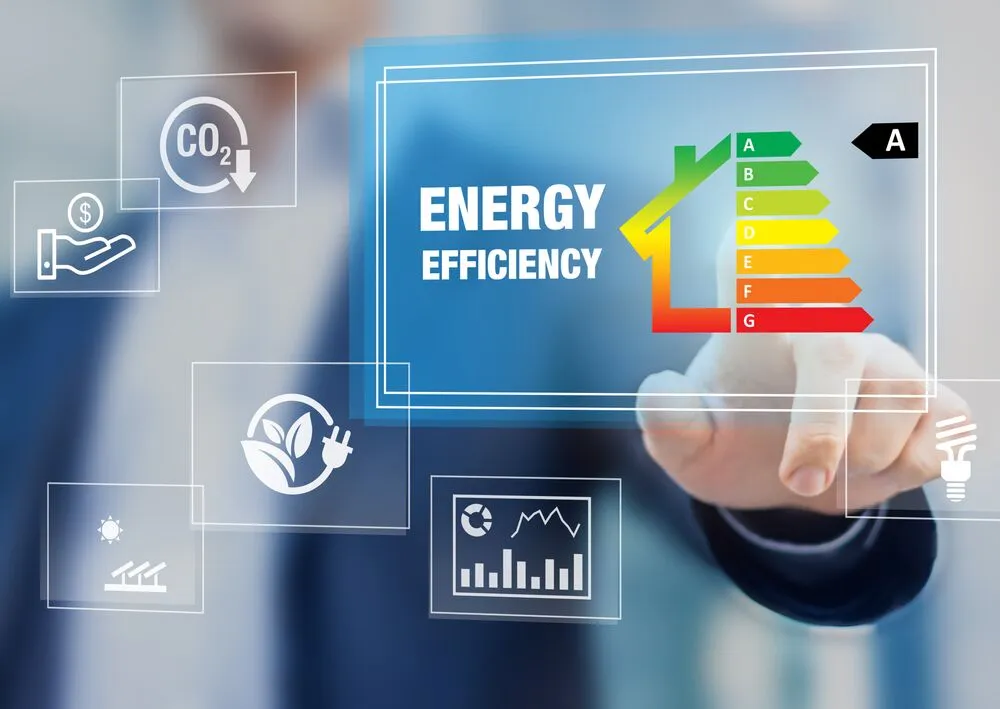ISO 50001 Energy Management System Compliance for Smart Devices
The ISO 50001 standard provides a framework to manage energy performance and reduce consumption in organizations. In the context of smart home and IoT devices, compliance with this standard ensures that products are designed and manufactured in an environmentally responsible manner. This service focuses on verifying the compliance of smart devices with the requirements outlined in ISO 50001, ensuring they meet stringent energy efficiency criteria.
Smart devices such as thermostats, lighting systems, and appliances can significantly impact household energy consumption if not designed with energy efficiency in mind. By adhering to ISO 50001 standards, manufacturers ensure their products contribute positively to sustainable practices while also reducing operational costs for consumers.
The process involves several key steps: initial assessment, gap analysis, implementation plan development, and continuous improvement monitoring. Our team of experts conducts comprehensive audits to identify areas where your product can be optimized further regarding energy usage. We then provide tailored recommendations based on industry best practices and local regulations.
For instance, we use advanced simulation software to model the expected performance of smart devices under various operating conditions. This allows us to predict potential savings and suggest improvements that could lead to better overall efficiency. Additionally, our lab uses state-of-the-art measurement tools capable of capturing minute variations in energy consumption patterns across different scenarios.
Achieving ISO 50001 compliance not only enhances your product's marketability but also demonstrates a commitment to environmental responsibility. It can enhance brand reputation and help attract environmentally conscious customers who prioritize sustainability when making purchasing decisions.
Moreover, businesses that achieve certification often see reduced operational costs due to improved energy management practices. The implementation of an effective energy management system helps organizations identify opportunities for cost savings through more efficient use of resources.
In summary, our service provides a holistic approach towards achieving ISO 50001 compliance for smart devices by offering expert guidance throughout the entire process from initial assessment to final certification. By leveraging cutting-edge technology and industry best practices, we ensure that your products meet or exceed all necessary requirements while contributing positively to global sustainability efforts.
Why It Matters
The importance of ISO 50001 compliance cannot be overstated in today’s world where environmental consciousness is becoming increasingly important. For companies involved in the development and production of smart home and IoT devices, ensuring adherence to these standards can make a substantial difference both environmentally and commercially.
- It helps reduce the carbon footprint associated with product lifecycle operations,
- Improves operational efficiency leading to lower maintenance costs,
- Enhances customer satisfaction by delivering energy-efficient solutions,
- Aids in regulatory compliance which is crucial for business longevity,
- Provides competitive advantage through innovation and differentiation,
- Fosters a culture of continuous improvement within the organization.
The certification process encourages businesses to think beyond just manufacturing but also consider how their products interact with users, other devices, and infrastructure. This holistic view ensures that every aspect of product design is optimized for energy efficiency.
Furthermore, achieving ISO 50001 compliance can help companies stay ahead of emerging trends in sustainable technology. As governments worldwide implement stricter environmental regulations, being prepared early on will allow businesses to adapt smoothly without disrupting existing operations or losing market share.
Environmental and Sustainability Contributions
By ensuring that smart devices comply with ISO 50001 standards, manufacturers play a crucial role in advancing environmental sustainability. Here are some ways this compliance contributes positively to our planet:
- Reduces greenhouse gas emissions: Smart devices designed and tested according to these guidelines help minimize energy consumption, thereby reducing the carbon footprint.
- Encourages sustainable resource use: Optimized energy management practices lead to reduced waste generation during production processes as well as decreased raw material requirements throughout product lifecycles.
- Promotes circular economy principles: Compliance fosters a mindset focused on reusing, recycling, and repurposing components rather than disposing of them after short usage periods.
The benefits extend beyond just manufacturing processes; they also encompass consumer behavior patterns. Educated consumers who purchase energy-efficient products contribute significantly to global efforts aimed at combating climate change.
Competitive Advantage and Market Impact
- Attracts environmentally conscious customers: In an era where many consumers prioritize green credentials when making purchasing decisions, having ISO 50001 certification can set your brand apart from competitors.
- Increases market share: By offering superior energy-efficient solutions, you position yourself as a leader in the industry, which can translate into increased sales and customer loyalty.
- Solidifies reputation as an environmentally responsible company: Certification demonstrates a strong commitment to sustainability that resonates well with stakeholders including employees, investors, and communities.
- Paves way for future growth opportunities: With growing emphasis on sustainable practices across various sectors, having this certification can open doors to new markets and partnerships.
Beyond mere compliance, achieving ISO 50001 certification signals your dedication to continuous improvement. It positions you as an innovative company committed to reducing environmental impact while maintaining high quality standards.





